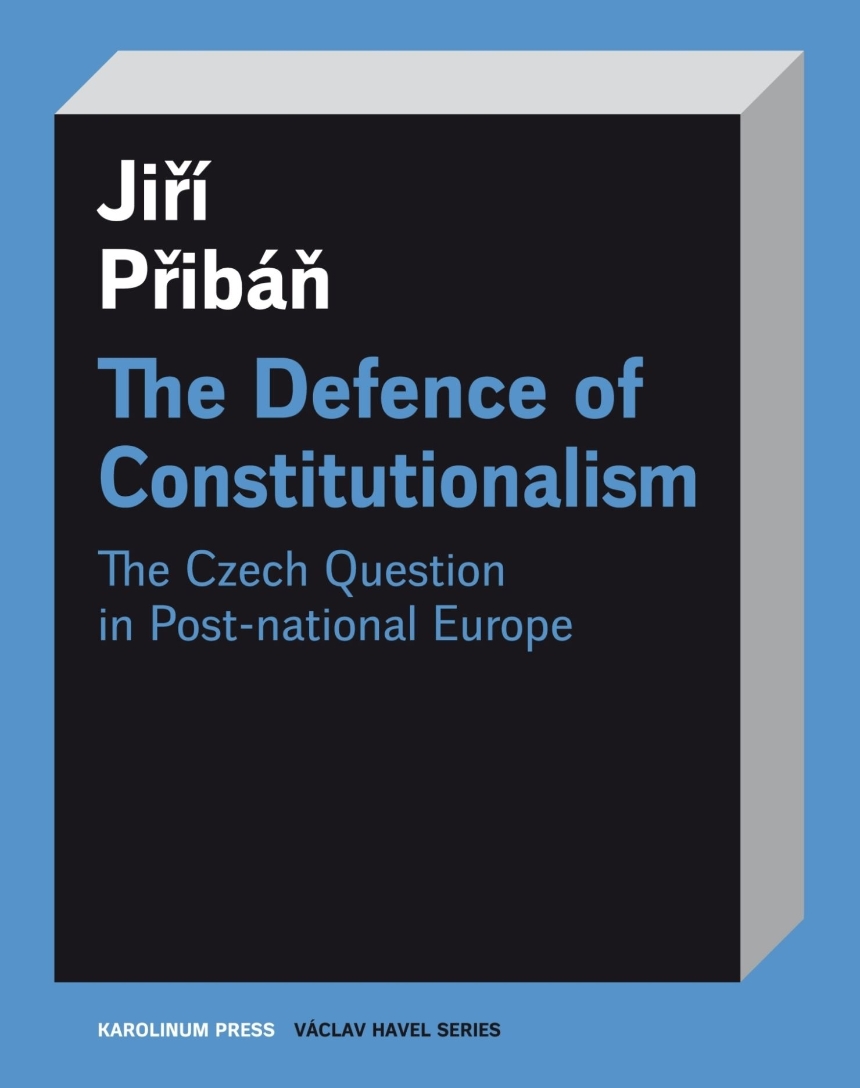Karolinum Press, Charles University
The Defence of Constitutionalism
Or the Czech Question in Post-National Europe
9788024634234
9788024634241
9788024638249
Distributed for Karolinum Press, Charles University
The Defence of Constitutionalism
Or the Czech Question in Post-National Europe
More than a century after the publication of Czech politician Tomáš Garrigue Masaryk’s study The Czech Question, Czech politics—instead of the nation’s historical struggle for survival and independence—has become a pragmatic question of democratic constitutionalism and civility. Originally published in major Czech newspapers, these essays on contemporary European politics demonstrate that this new understanding involves both technical questions of power making and critical questions of its meaning. Democracy, Přibáň shows, is the process of permanent self-correction. It possesses both the capacity to respond to unexpected problems and crises and intrinsic tensions between principled arguments and everyday administrative processes. Defending constitutionalism, therefore, draws on principles of civil rights and freedoms, limited government, and representative democracy, the validity and persuasive force of which are at stake not only in the Czech Republic, but also in the post-national European Union and our global society at large.
Reviews
Table of Contents
Jiří Přibáň’s Socratic Warnings (Petr Pithart)
Note to the Reader
1 Czechs in Europe
The Czech Question in Post-national Society
The Poverty of Czech Euroscepticism
The Czech Presidency of the EU
European Borders
Endless Europe
EU – War Child, Victim of Peace?
The Union Today Doesn’t Know What it is, Hence its Crisis
Greece – State of Emergency
Brrr-exit
2 Democratic Constitutionalism
The Cold Lies of the State
Election Carnival
Waiting for a Leader?
Depoliticisation – A Czech Dream of Peace and Tranquillity
The Disintegration of the Public Sphere
Where Did the People Go?
3 Parliamentary Democracy
Parliamentarianism
Elections
The Age of Political Uncertainty
The Defence of Party Politics
4 Liberty and her People
Militant Democracy
Protest
Hunger Strike
Social Citizenship
People, or Population?
5 Political Thought in a Global Society
The Crisis and its Criticism
Intellectuals
For Others Rights, for Himself Duties
Sunken Islands of Positive Deviance?
Democracy is a Process of Permanent Self-correction
Czeching Wales
Note to the Reader
1 Czechs in Europe
The Czech Question in Post-national Society
The Poverty of Czech Euroscepticism
The Czech Presidency of the EU
European Borders
Endless Europe
EU – War Child, Victim of Peace?
The Union Today Doesn’t Know What it is, Hence its Crisis
Greece – State of Emergency
Brrr-exit
2 Democratic Constitutionalism
The Cold Lies of the State
Election Carnival
Waiting for a Leader?
Depoliticisation – A Czech Dream of Peace and Tranquillity
The Disintegration of the Public Sphere
Where Did the People Go?
3 Parliamentary Democracy
Parliamentarianism
Elections
The Age of Political Uncertainty
The Defence of Party Politics
4 Liberty and her People
Militant Democracy
Protest
Hunger Strike
Social Citizenship
People, or Population?
5 Political Thought in a Global Society
The Crisis and its Criticism
Intellectuals
For Others Rights, for Himself Duties
Sunken Islands of Positive Deviance?
Democracy is a Process of Permanent Self-correction
Czeching Wales

